How To Help Someone With Depression
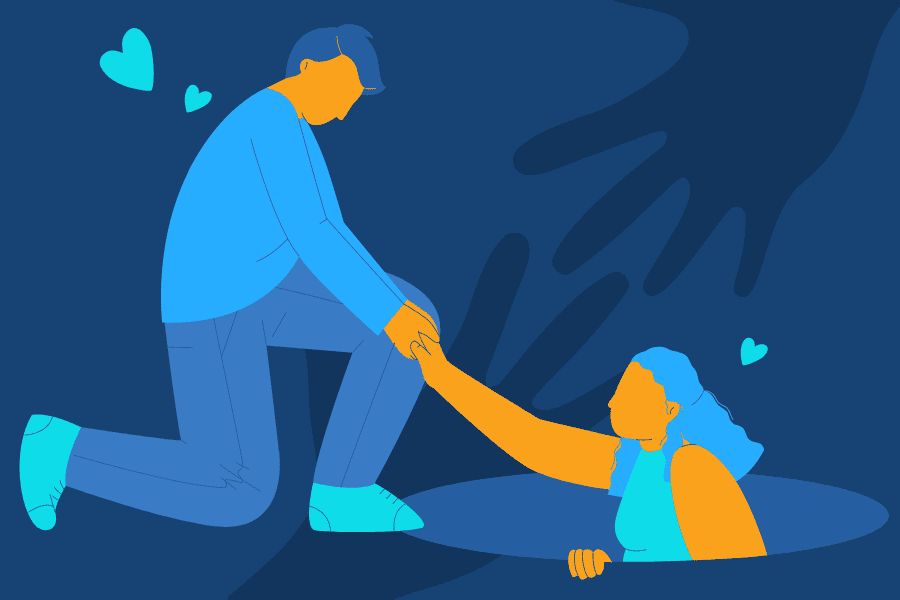

Depression is a serious mood disorder that affects how a person thinks, feels, and acts.
Everyone experiences feelings of sadness or times when they feel down. With depression, these negative feelings don’t go away.
There are different forms of depression, including:
If you or someone you know is facing challenges with depression, it is crucial to seek professional help. Depression is treatable, and various therapies are available to address each individual’s needs.
Depression is a common but serious condition that impacts a person’s everyday life.
Living with depression can make it challenging to perform in school and work. It affects a person’s eating and sleeping habits and makes it hard to get through everyday tasks.
Individuals with depression experience persistent sadness, hopelessness, and worthlessness that can lead to serious negative thought cycles.
Depression can significantly impact a person’s quality of life and become so bad that they may experience suicidal thoughts.
Depression is a serious mood disorder.
It can make a person feel extremely sad, lonely, and hopeless. Depression may lead to other serious health problems and self-harming behaviors.
Helping a person with depression can save a life and lead someone toward healing.
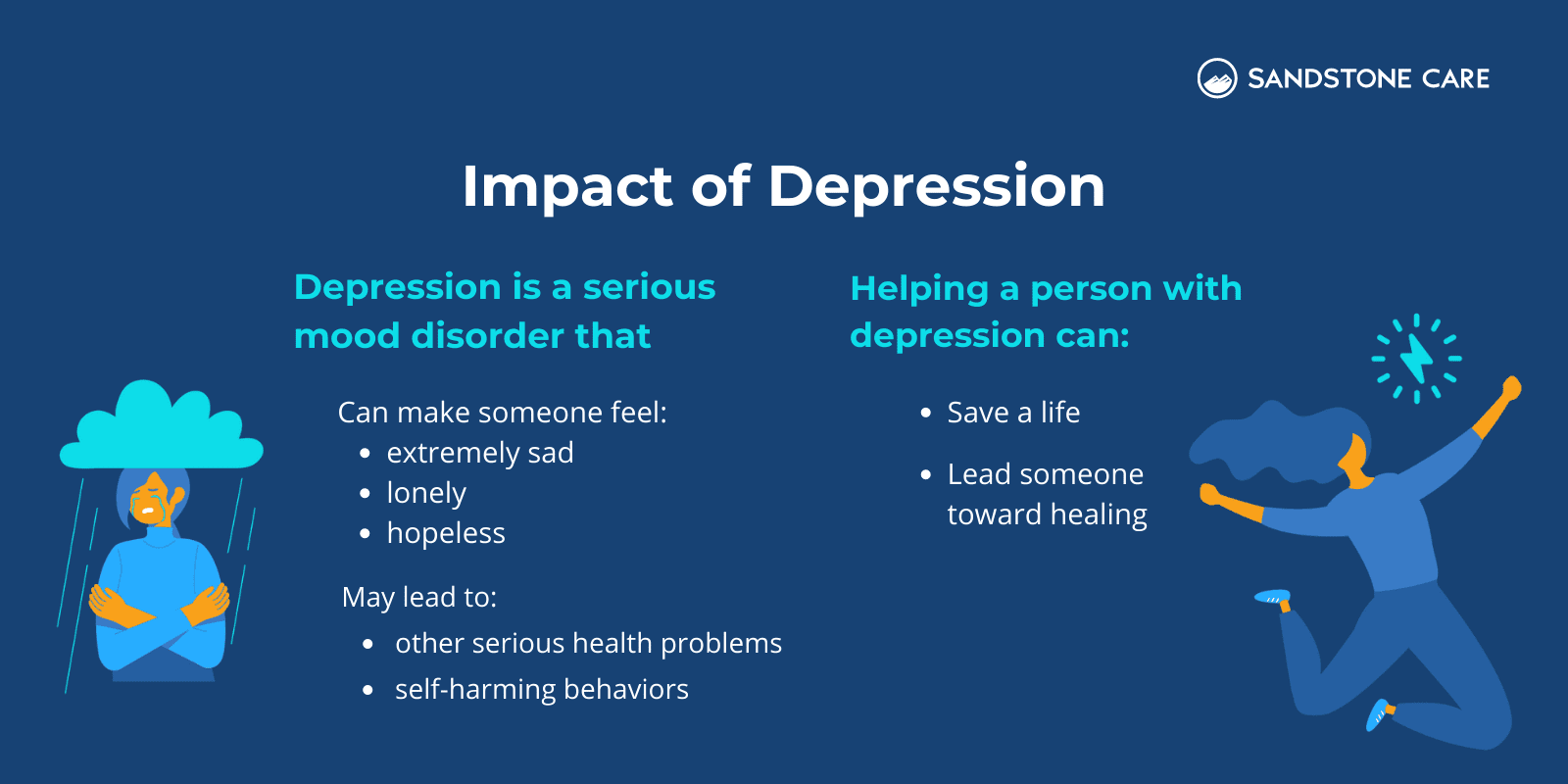
The best way to help someone depressed is to be there for them and connect them with professional help.
Individuals need to understand mental health to take care of themselves and recognize when help is needed.
Mental health affects every aspect of a person’s life. When a person faces challenges with their mental health, it can affect their overall well-being.
If someone is suicidal, seek help right away. You can call 911 or the National Suicide Prevention Lifeline at 988.
It can be hard for someone suicidal to open up to another person about what they are going through.
It can also be tough to take help, whether they know they need it.
If you are trying to help someone who is suicidal, there are a few things you can do:
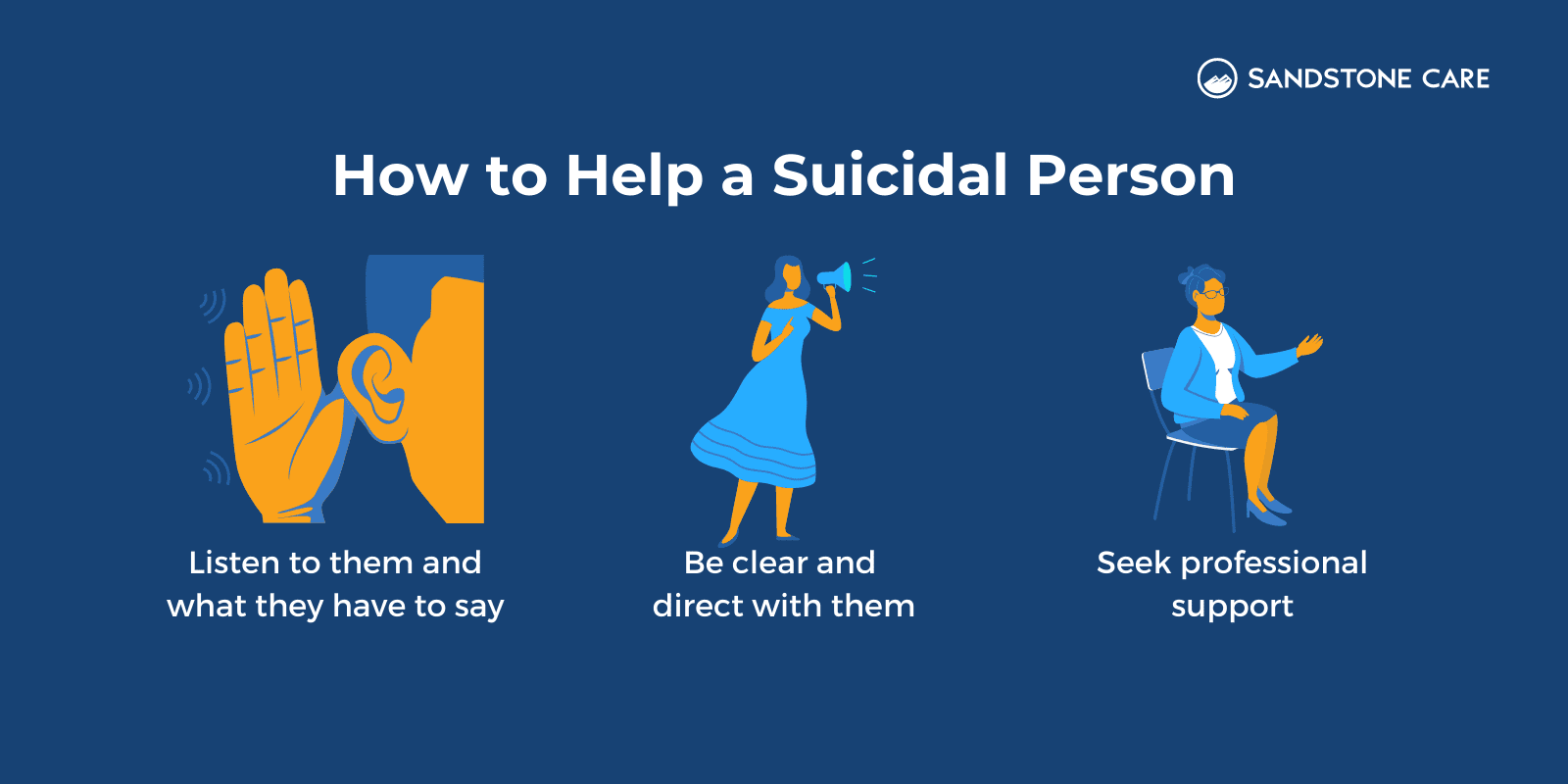
If someone is suicidal, they are in danger and can harm themselves or others.
Call 911 if someone is suicidal.
Suicidal thoughts can come from several different causes.
This can include:
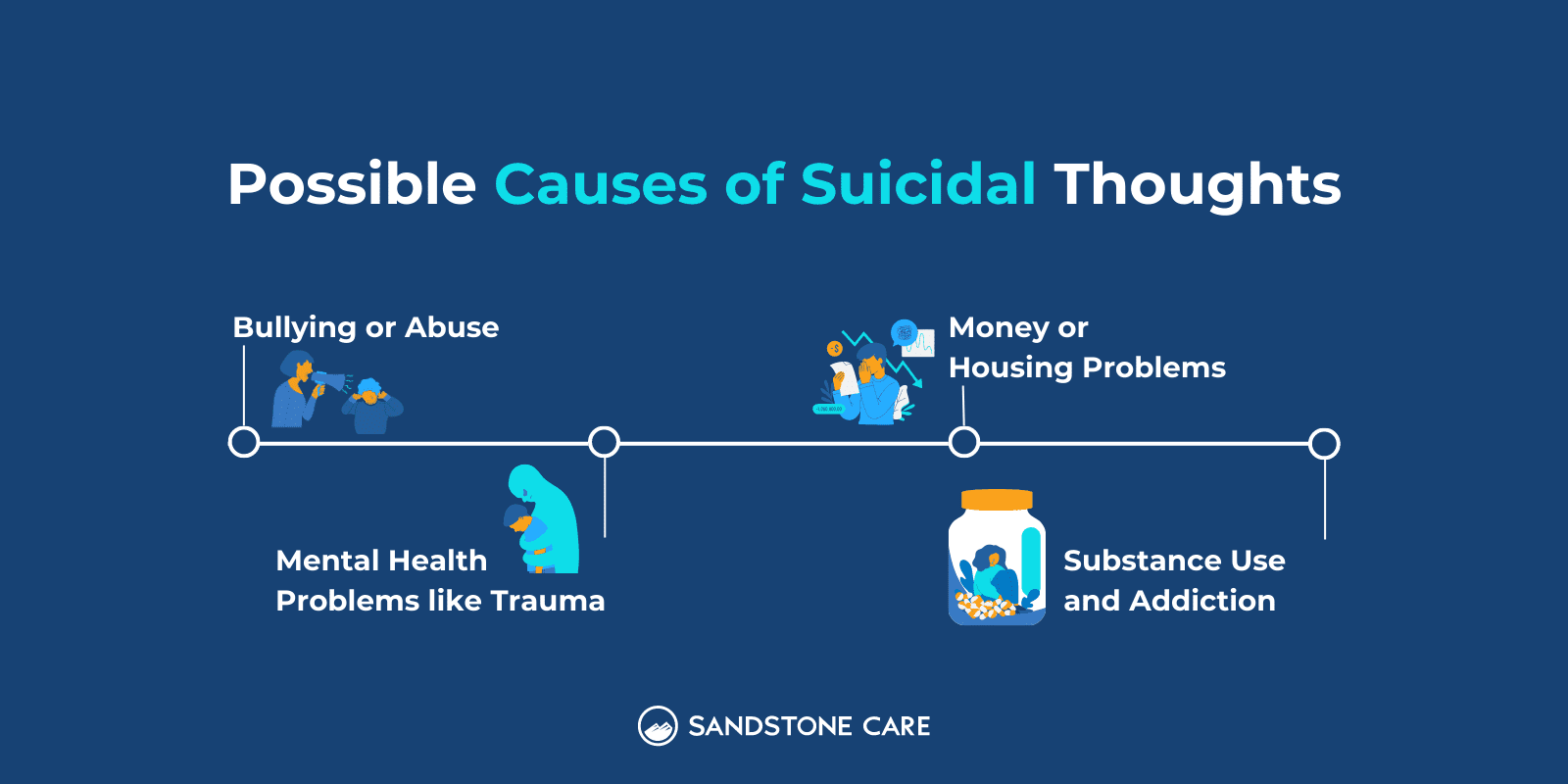
Some of the most common warning signs and symptoms of depression include:
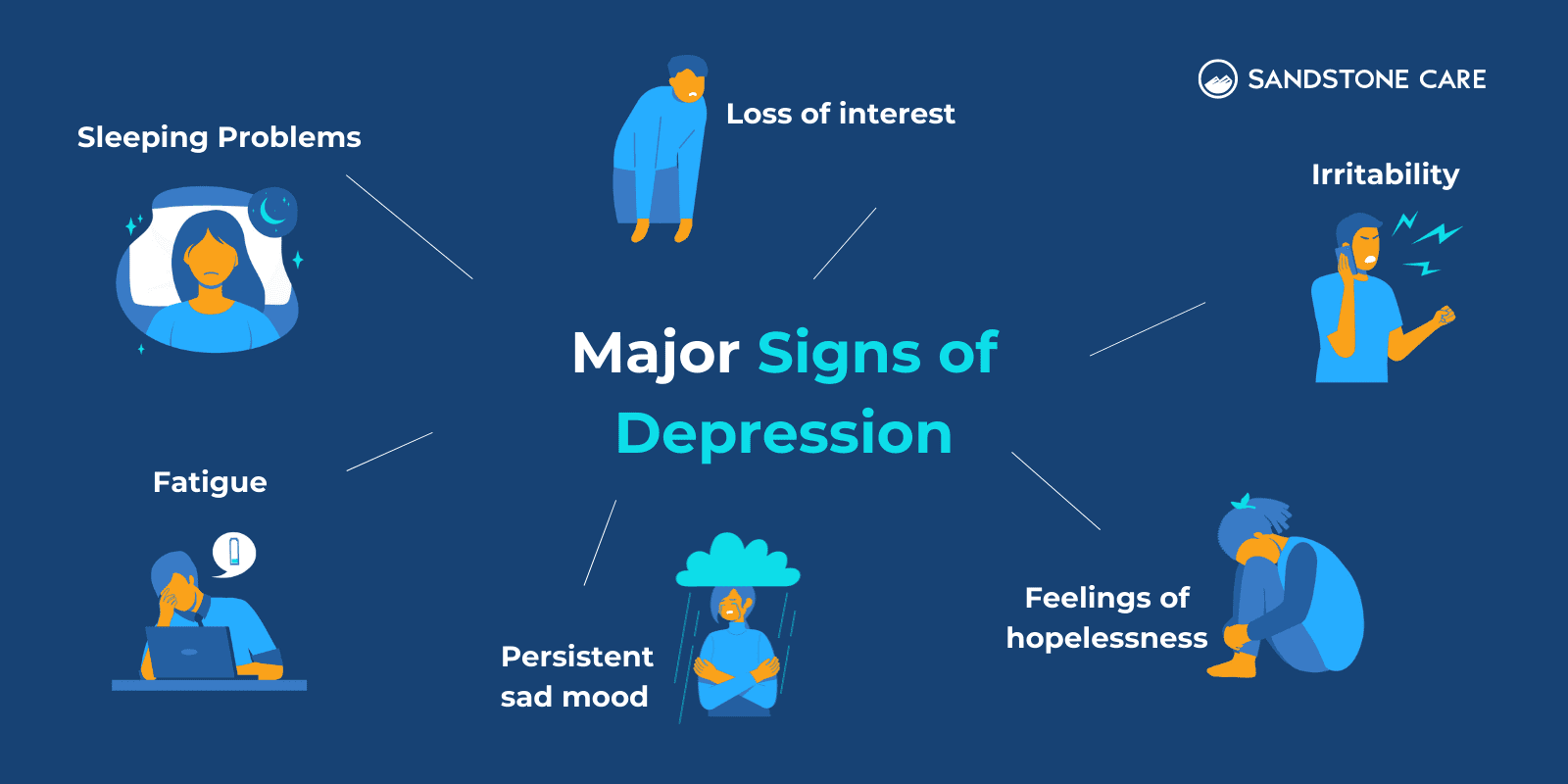
A person who may be depressed may identify the signs of depression by recognizing how it affects them daily.
Everyone has times when they feel sad or down. However, people experiencing depression feel these negative emotions for more than two weeks.
These feelings affect almost every aspect of their life: sleep, eating habits, relationships, work, school, and personal life.
Identifying depression can be challenging. If you think you or a loved one may be struggling with depression, reach out for help.

Identifying the signs of depression in others can be challenging at times because some people may seem completely fine.
Paying attention to your loved ones when something is out of the ordinary can determine if you should communicate your concerns.
Some of the most common observable signs for someone affected by depression can include:
One of the leading behavioral characteristics of someone diagnosed with depression is losing interest in things they used to enjoy.
This lack of interest can cause a person to sleep a lot, isolate themselves from their loved ones, or become withdrawn.
Sometimes it is hard to see these behaviors because many people with depression may mask these symptoms.
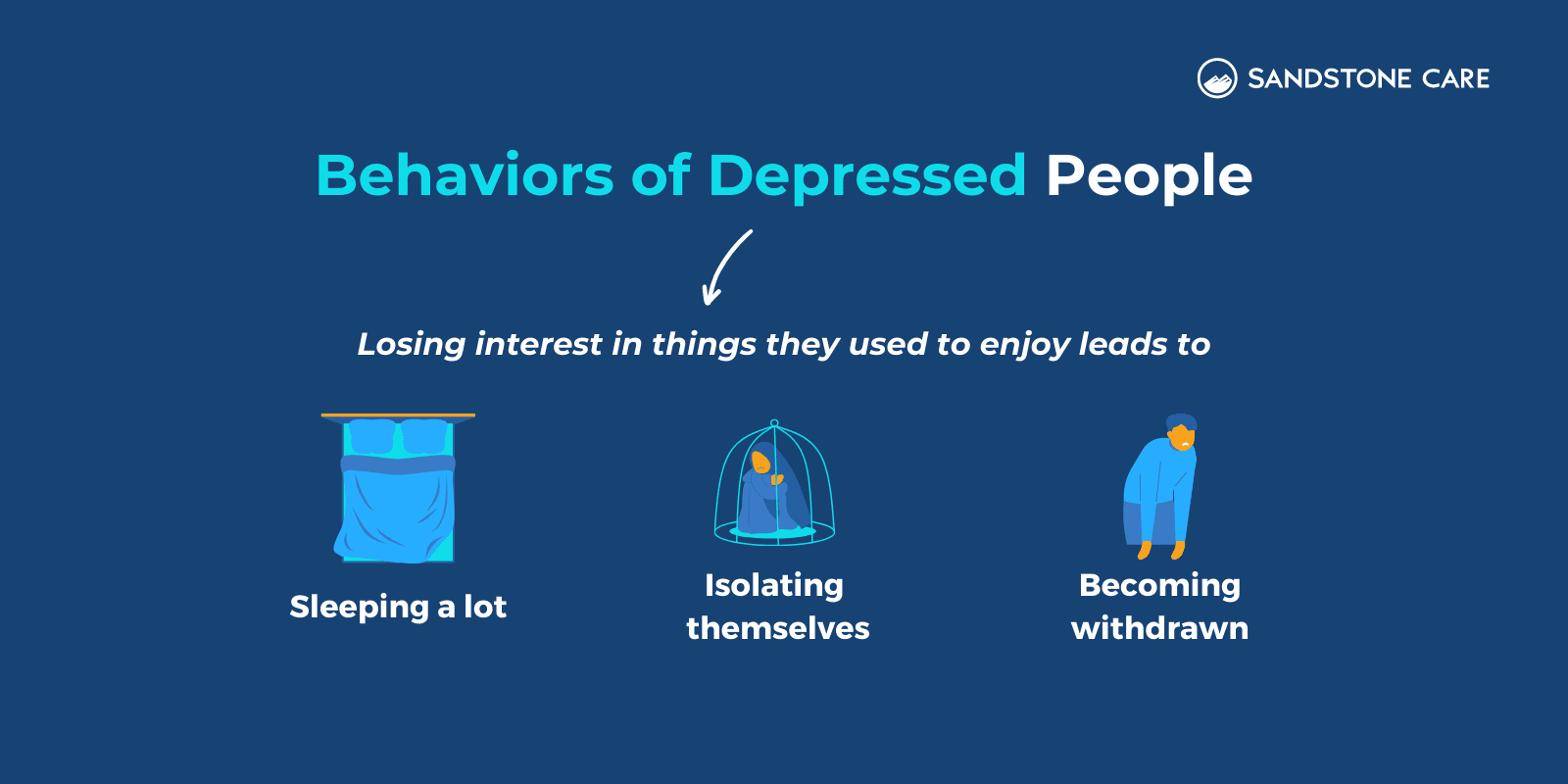
When a person is experiencing depression, it can make them want to isolate themselves and be alone.
It can be challenging or very draining to be around others.
Many people who are depressed seem fine when they are in social situations. Just because someone is friendly, happy, or outgoing on the outside doesn’t mean they are not facing mental health challenges.
Depression affects each person differently.
Depression can change the way a person’s brain functions.
Some cognitive characteristics of individuals who are depressed can include:

Depression is a serious mood disorder that can become life-threatening.
Helping a person with depression can improve their overall health and well-being and save a life.
Individuals with depression can face difficult feelings that can cause them to feel sad, helpless, lonely, and hopeless. It can be tough to get through daily life. Many people with depression don’t ask for help but need it.
Helping a person with depression can help them heal and live a healthy and sustainable life.
There are many different ways a person can cope with depression, including:
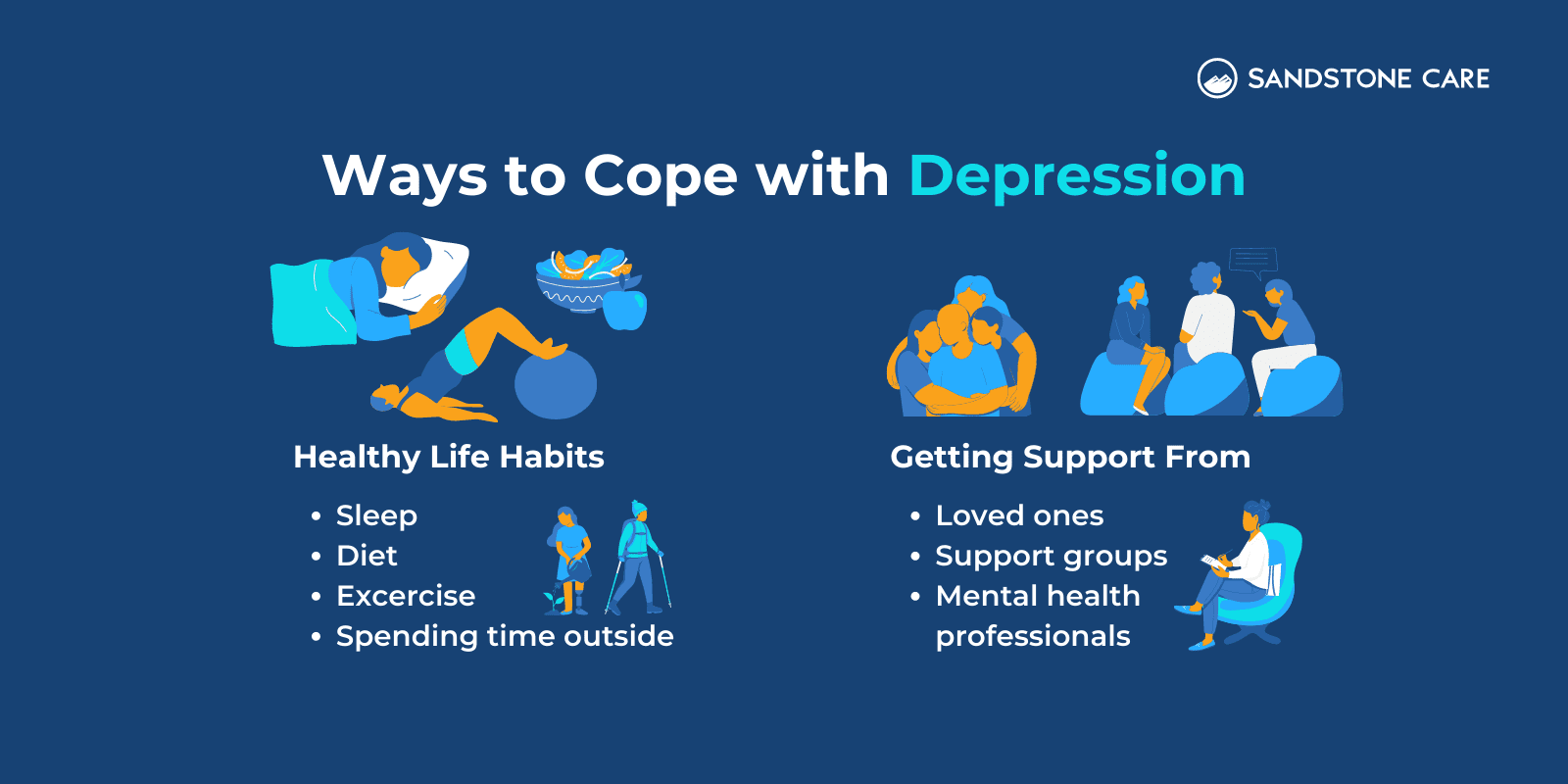
An essential piece of advice to give to someone who is depressed is to know that they’re not alone.
As lonely as it may feel, there is help out there.
Individuals facing challenges with depression may find it hard to open up about the difficult feelings they are experiencing. Talking to someone can lift that weight off and teach them healthy habits and ways to cope.
There are different approaches to helping someone with depression, including therapy, medication, and lifestyle changes.
It is important to find something that works for each unique individual. What works for one person may not work for another. Some people may benefit from therapy. Others may need a combination of medication and therapy.
A wide range of therapies is available for treating depression, including psychotherapy.
Psychotherapy, also known as talk therapy, refers to various psychological methods used for many different mental illnesses.
Cognitive behavioral therapy (CBT) is an effective form of psychotherapy that can help a person learn how to identify unhealthy thoughts and behaviors.
It is important to consult with a healthcare professional to help you determine what the best approach is for treating depression.
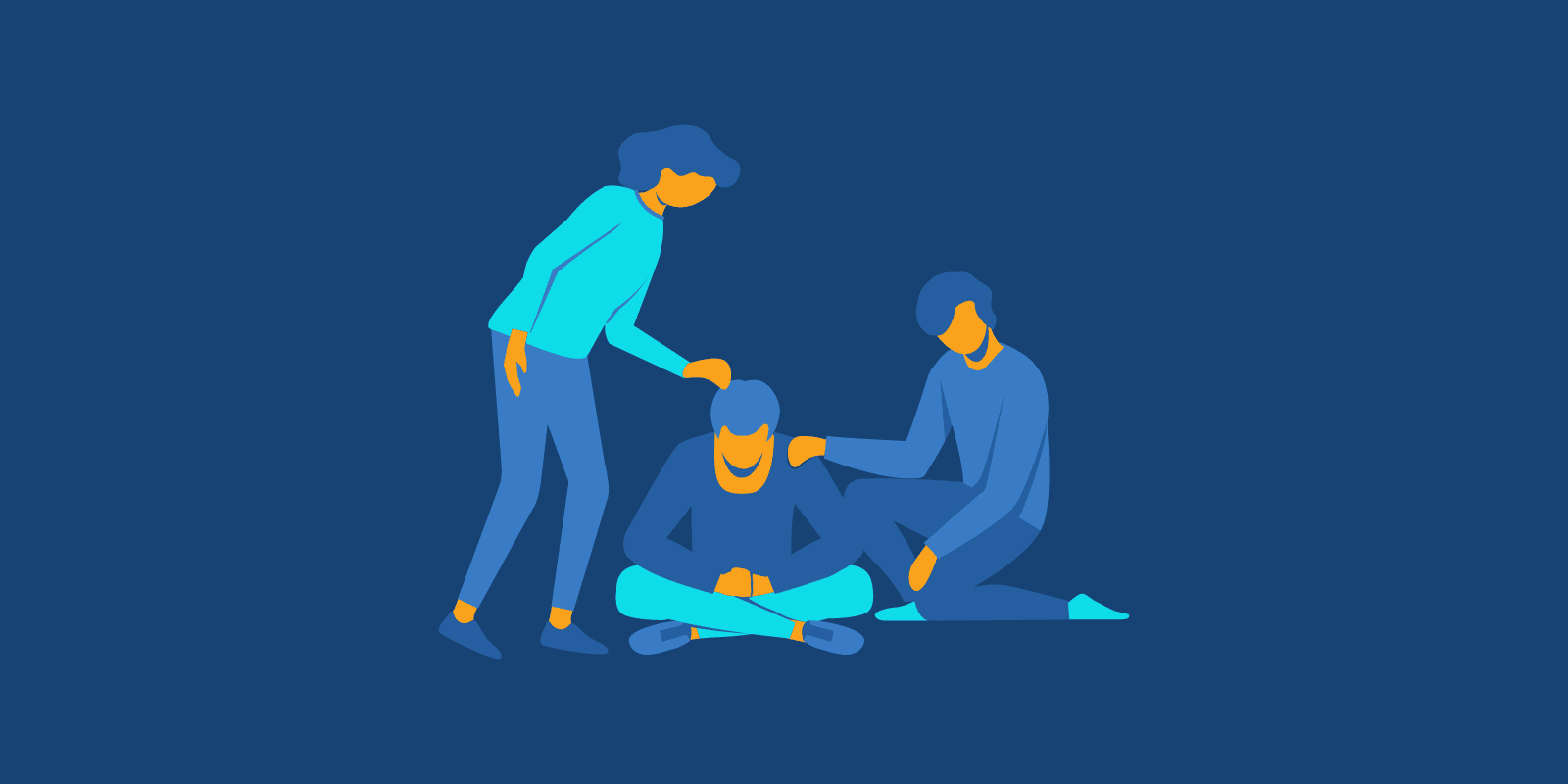
A person’s environment greatly affects their physical and mental health.
Creating a supportive environment is important in ensuring a person feels safe, comfortable, and secure.
When a person has a supportive environment, they don’t feel afraid to ask for help. They have someone to go to if they are going through a tough time, and they know that they are not alone.
For children and young people especially, supportive environments are essential in each individual’s physical, cognitive, social, and emotional development.
A supportive environment for mental health can take place at work, school, in the community, and at home.
Supportive environments are designed to encourage good physical and mental health.
A supportive environment can mean a number of different things, like:
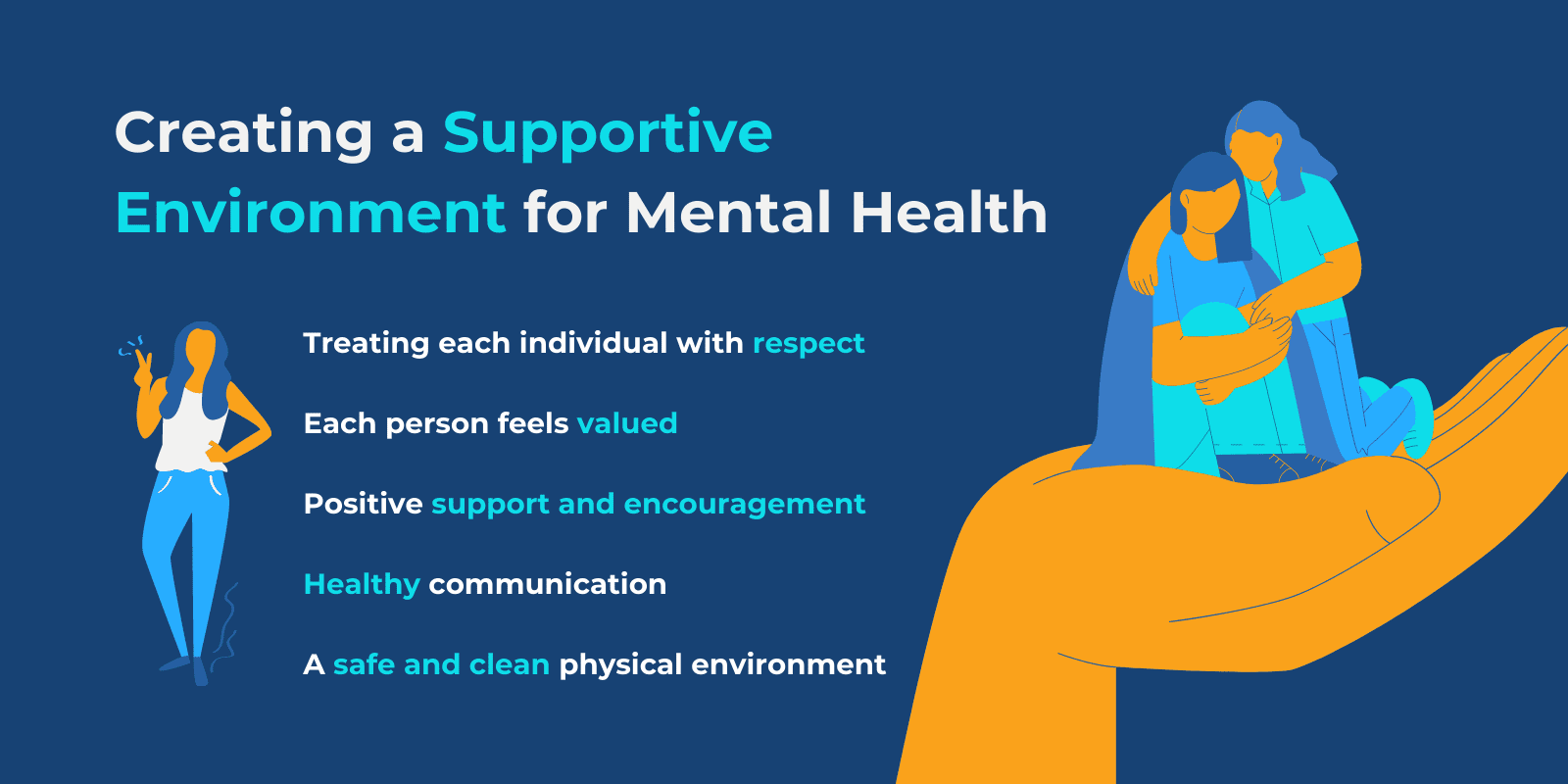
A person’s environment can contribute to and trigger symptoms of depression and other mental health disorders.
According to Experimental Neurobiology, individuals in an unhealthy environment are at a disadvantage regarding their mental health.
If someone is opening up to you about depression, there are a few ways you can respond to them.
You can remind them that they are strong for opening up about it and that you are glad they talked to you.
It is also important for them to know that they are not alone. You can offer them help and support based on what they are comfortable with. You can ask them what you can do to help them.
Validation also goes a long way. Remind them that you know it must’ve been hard to open up, and even if you don’t understand what they are going through, you are there for them.
The most important thing for a person experiencing depression is to know they are not alone, that you are there for them, and that support and help are available for them.
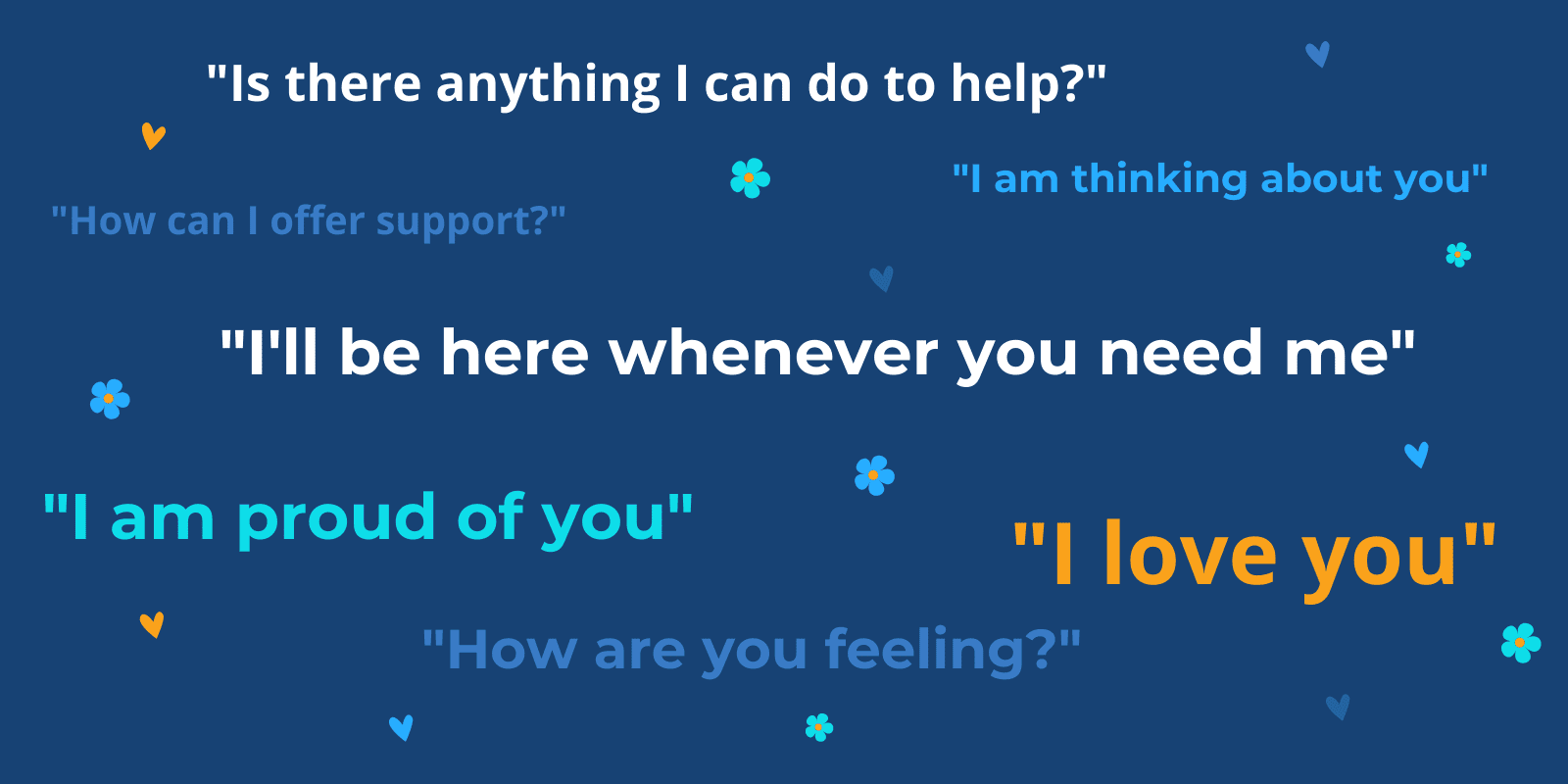
A few ways you can help someone who is struggling emotionally can include:
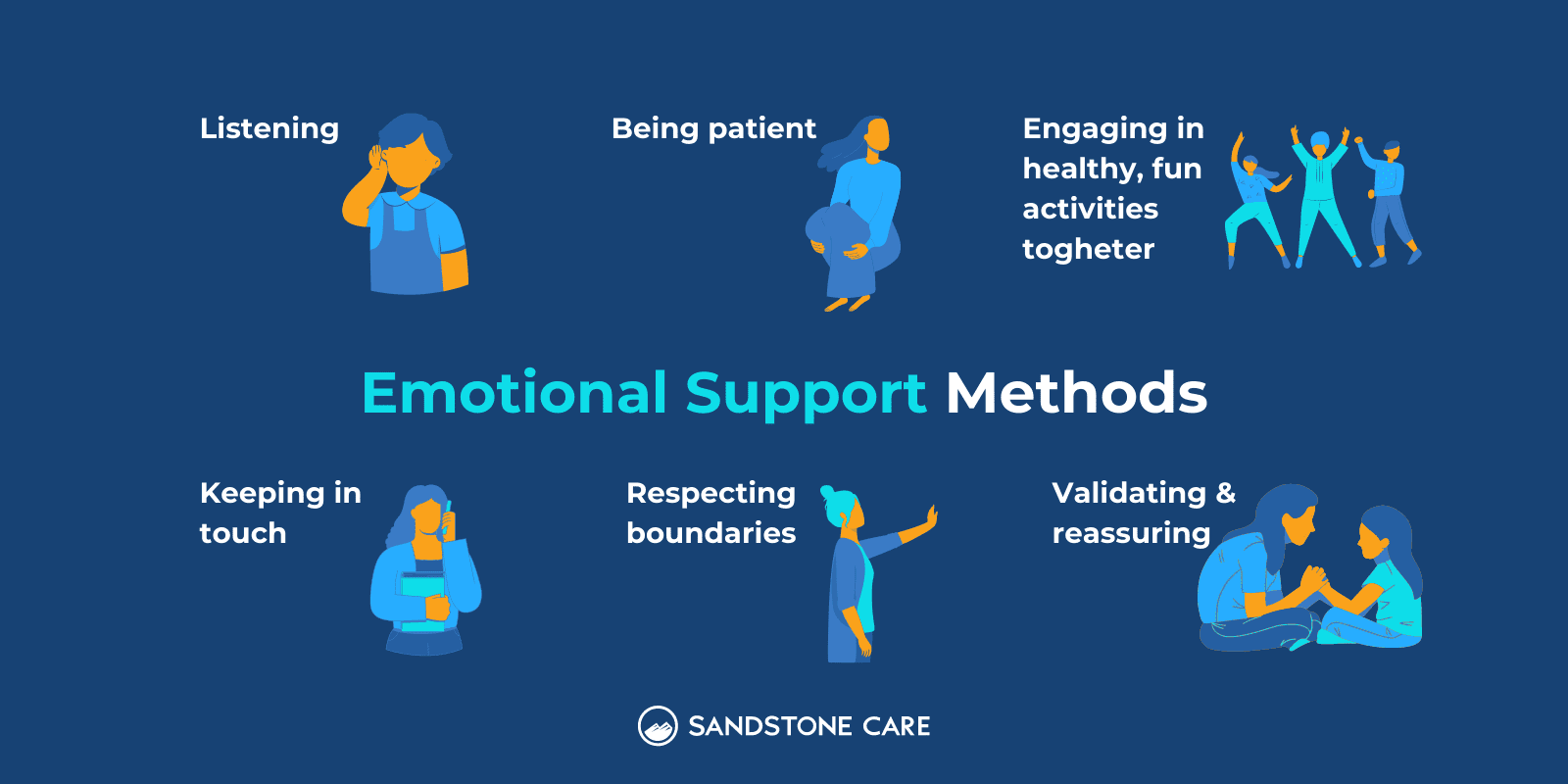
Some ways to communicate with someone who is depressed can include:
Three common strategies for coping with depression can include:
Often, the most significant thing a person needs is someone to be there to listen.
Depression can cause many negative feelings, including loneliness, hopelessness, and emptiness.
Having a person be there to support them and understand them can make all the difference.
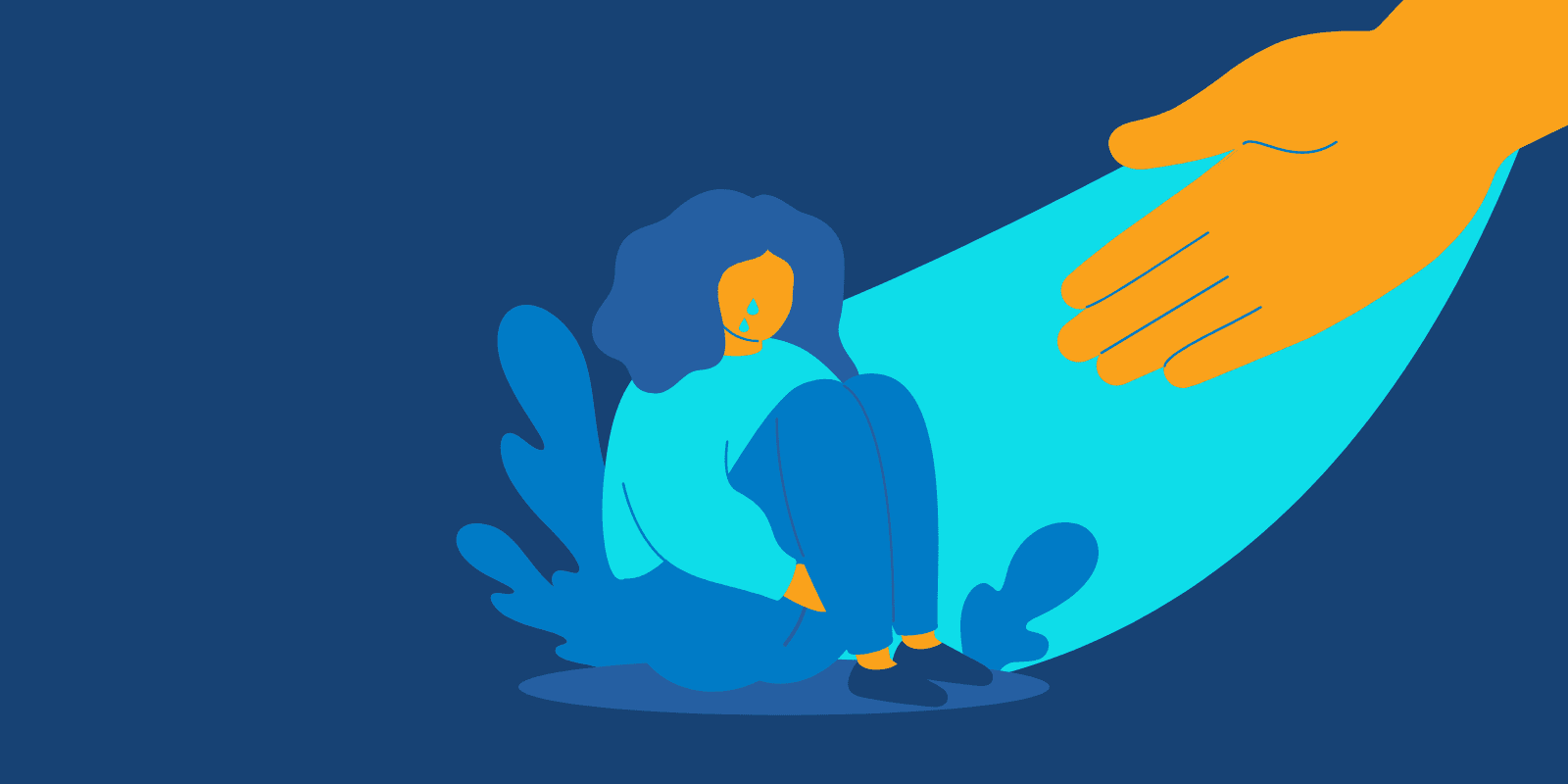
Sometimes, as much as you want to help someone, they may not want help.
If this is the case, you should not force them to take your help, as this can cause conflict and worsen the situation.
You want to make sure that they know you are there for them while still respecting their boundaries.
Sometimes, emotional support doesn’t have to be directly talking about what the person is going through.
You can also provide emotional support by encouraging healthy habits. This could be exercising together, eating healthy meals together, or going outside.
Helping a person doesn’t always have to be what you thought it was. Little things can make all the difference, and it is important to be patient and respectful.
One major piece of advice you can give someone who is depressed is to talk to someone and reach out for professional help.
Getting professional help can help a person learn hope to manage the symptoms of depression, cope, and live a balanced and sustainable lifestyle.
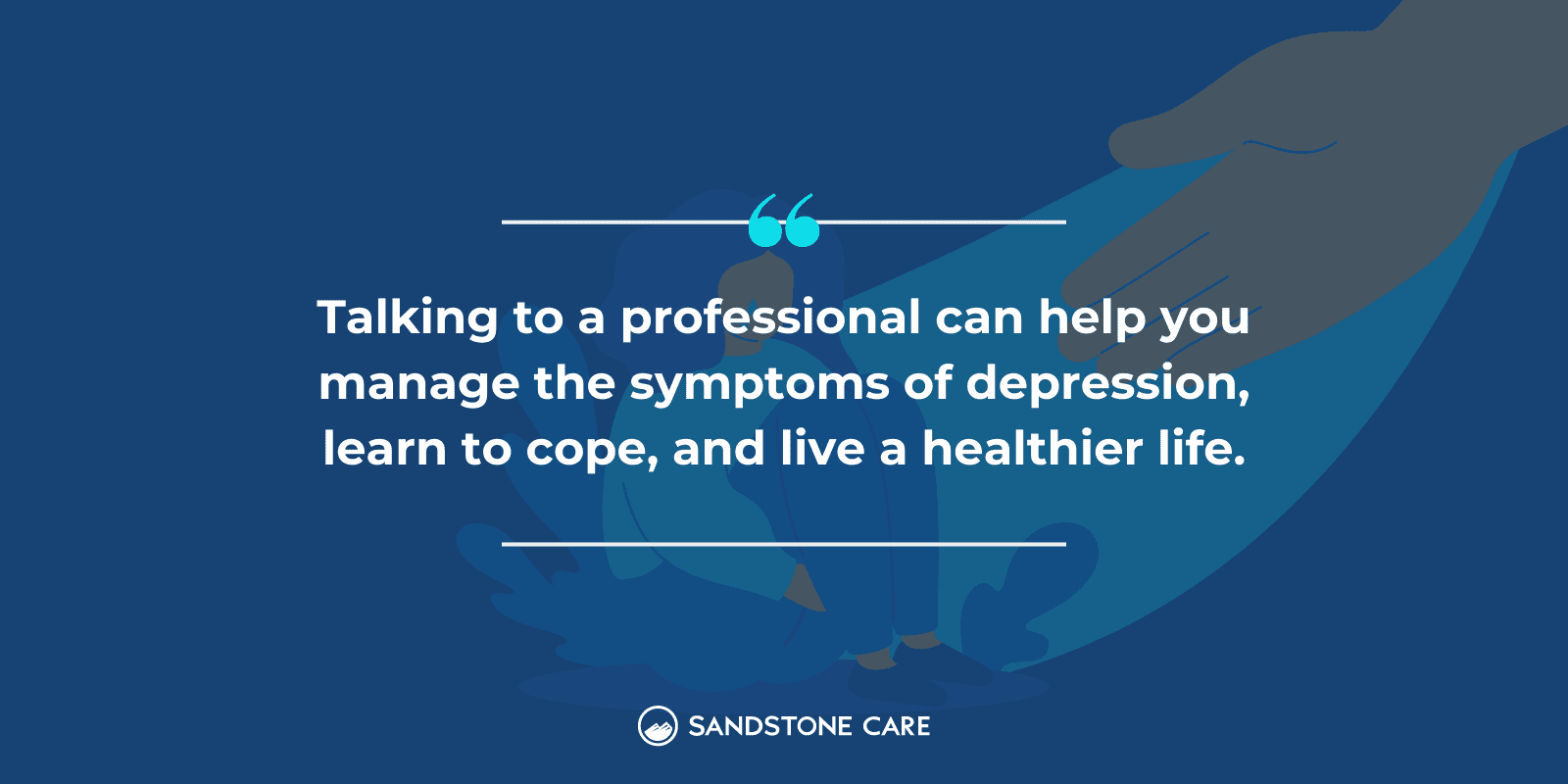
There is a boundary that should be set if a person keeps trying to help someone that doesn’t want to be helped.
One of the biggest indicators that you should stop trying to help someone is when it starts to take a toll on your mental health and well-being.
If you are spending an excessive amount of time, energy, and resources trying to help someone that doesn’t want to be helped, you should probably stop trying.
Sometimes, to help someone, both people need time and space apart.
It is important to recognize when it is time to stop trying to help.
Self-care means that you do things to improve your physical and mental health and help you live well, according to the National Institute of Mental Health.
Taking care of yourself can include doing things like:
Self-care can also mean learning how to set healthy boundaries and enforce them. Learning to say “no” when things are too much or overwhelming can help you protect yourself and your mental health.
Self-care doesn’t always look the same for each individual. But, it is important to find things that work best for you.
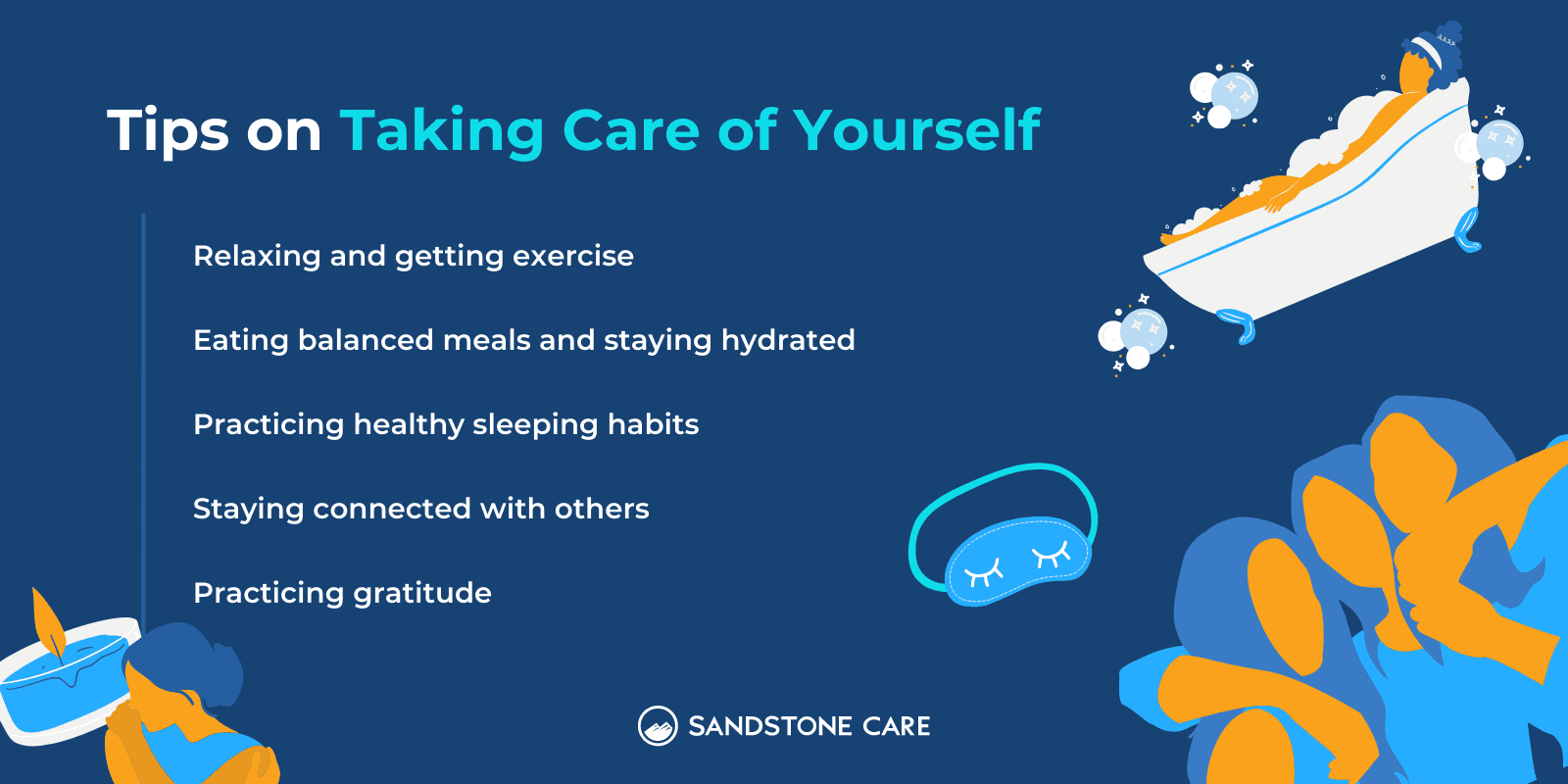
If you don’t take care of yourself, it isn’t easy to take care of and support others.
Self-care can help a person maintain healthy relationships and be in a healthier mindset to be able to support others.
When you take care of yourself, you can offer support to others and maintain healthy boundaries at the same time.
Self-care comes with many benefits, some of which include:
If you or someone you know may be facing challenges with mental health, the most important thing to do is seek professional help.


Depression is a serious mood disorder. Learning the signs and symptoms of depression can help you support others with depression. Sandstone Care is here to support teens and young adults with mental health and substance use disorders.